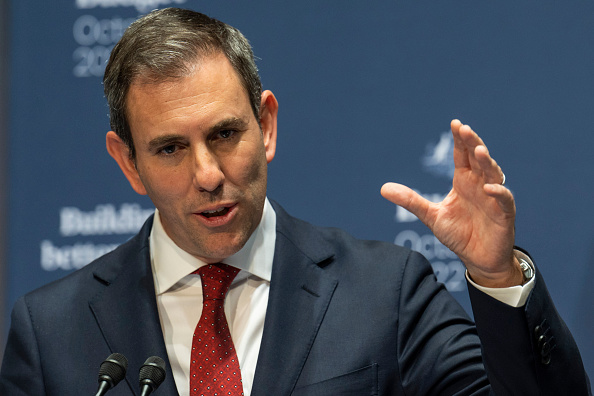Relief for energy costs as Federal Government releases budget
Low cost loans for solar panels and electrification for households and business continue the push towards renewable energy
Relief for household energy costs, payment increases for job seekers and a bonus tax discount to help small businesses electrify – these are just a few takeaways from the Federal Government’s 2023 budget announced by Treasurer Jim Chalmers last night.
All businesses with an annual turnover of less than $50m will be eligible for 20 percent of spending that goes towards electrification and energy efficiency, including purchasing more efficient white goods, as well as upgrading to electric heating and cooling.
In further news around energy, the Government sought to relieve cost of living pressures with their energy bill relief plan, which will lower the costs for eligible households by up to $500. Prime Minister Anthony Albanese has forecast that the measure should help lower inflation by 0.75 percent.
“This is a responsible budget,” the Prime Minister said. “What we’ve done is to take pressure off families without putting pressure on inflation.
“What we haven’t done is put cash payments that would have added to inflation.”
Households seeking to improve their energy efficiency will have access to a low interest loan, with 110,000 on offer for upgrades such as solar panels and double glazing, as well as more energy efficient appliances. The Federal Government has set aside $1b to establish the fund.
Following repeated calls for more support aimed at job seekers, the budget also includes a $40 a fortnight increase in the JobSeeker payment, which still falls short of the recommendations by the Economic Inequality taskforce. Treasurer Jim Chalmers said on ABC News Breakfast that his government had ‘done what we can’ to address the needs of job seekers.
“We’ve tried to do as much as we can without blowing the budget and adding substantially to inflationary pressures in the economy,” he said.
The budget also sought to relieve pressure on the Medicare system, tripling the bulk billing system for the most common consultations
This stylish family home combines a classic palette and finishes with a flexible floorplan
Just 55 minutes from Sydney, make this your creative getaway located in the majestic Hawkesbury region.
Continued stagflation and cost of living pressures are causing couples to think twice about starting a family, new data has revealed, with long term impacts expected
Australia is in the midst of a ‘baby recession’ with preliminary estimates showing the number of births in 2023 fell by more than four percent to the lowest level since 2006, according to KPMG. The consultancy firm says this reflects the impact of cost-of-living pressures on the feasibility of younger Australians starting a family.
KPMG estimates that 289,100 babies were born in 2023. This compares to 300,684 babies in 2022 and 309,996 in 2021, according to the Australian Bureau of Statistics (ABS). KPMG urban economist Terry Rawnsley said weak economic growth often leads to a reduced number of births. In 2023, ABS data shows gross domestic product (GDP) fell to 1.5 percent. Despite the population growing by 2.5 percent in 2023, GDP on a per capita basis went into negative territory, down one percent over the 12 months.
“Birth rates provide insight into long-term population growth as well as the current confidence of Australian families,” said Mr Rawnsley. “We haven’t seen such a sharp drop in births in Australia since the period of economic stagflation in the 1970s, which coincided with the initial widespread adoption of the contraceptive pill.”
Mr Rawnsley said many Australian couples delayed starting a family while the pandemic played out in 2020. The number of births fell from 305,832 in 2019 to 294,369 in 2020. Then in 2021, strong employment and vast amounts of stimulus money, along with high household savings due to lockdowns, gave couples better financial means to have a baby. This led to a rebound in births.
However, the re-opening of the global economy in 2022 led to soaring inflation. By the start of 2023, the Australian consumer price index (CPI) had risen to its highest level since 1990 at 7.8 percent per annum. By that stage, the Reserve Bank had already commenced an aggressive rate-hiking strategy to fight inflation and had raised the cash rate every month between May and December 2022.
Five more rate hikes during 2023 put further pressure on couples with mortgages and put the brakes on family formation. “This combination of the pandemic and rapid economic changes explains the spike and subsequent sharp decline in birth rates we have observed over the past four years,” Mr Rawnsley said.
The impact of high costs of living on couples’ decision to have a baby is highlighted in births data for the capital cities. KPMG estimates there were 60,860 births in Sydney in 2023, down 8.6 percent from 2019. There were 56,270 births in Melbourne, down 7.3 percent. In Perth, there were 25,020 births, down 6 percent, while in Brisbane there were 30,250 births, down 4.3 percent. Canberra was the only capital city where there was no fall in the number of births in 2023 compared to 2019.
“CPI growth in Canberra has been slightly subdued compared to that in other major cities, and the economic outlook has remained strong,” Mr Rawnsley said. “This means families have not been hurting as much as those in other capital cities, and in turn, we’ve seen a stabilisation of births in the ACT.”
This stylish family home combines a classic palette and finishes with a flexible floorplan
Just 55 minutes from Sydney, make this your creative getaway located in the majestic Hawkesbury region.


















